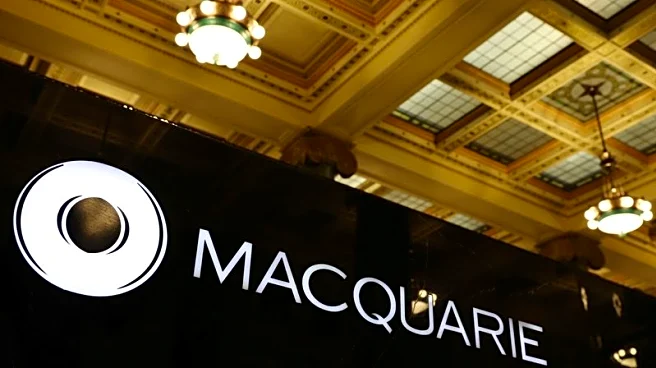What is the story about?
What's Happening?
McDonald's has announced a $200 million investment over the next seven years to promote regenerative agriculture practices on U.S. cattle ranches. This initiative represents the company's largest investment in regenerative agriculture within the United States. The program aims to enhance soil health, conserve water, and reduce reliance on synthetic chemicals and fertilizers. McDonald's is collaborating with the National Fish and Wildlife Foundation to provide competitive grants to organizations that will support participating ranchers. The investment will focus on regenerative grazing and conservation efforts across 4 million acres in up to 38 states. This move aligns with similar efforts by other major companies like General Mills and Nestle, which are also investing in regenerative farming.
Why It's Important?
McDonald's investment in regenerative agriculture is a significant step towards sustainable food production, reflecting a broader industry trend towards environmental responsibility. By supporting regenerative practices, McDonald's aims to improve the productivity and profitability of grasslands, which can lead to more sustainable beef production. This initiative not only addresses environmental concerns but also enhances the company's brand image as a leader in sustainable practices. The involvement of major suppliers like Cargill and Coca-Cola further underscores the collaborative effort required to drive meaningful change in agricultural practices. This investment could set a precedent for other companies to follow, potentially leading to widespread adoption of regenerative agriculture.
What's Next?
The first round of awards from the National Fish and Wildlife Foundation is expected to be announced in January. As the program progresses, it will be important to monitor the impact of these regenerative practices on both the environment and the profitability of participating ranches. The success of this initiative could influence other companies to increase their investments in sustainable agriculture, potentially leading to significant environmental benefits and shifts in industry standards.
















